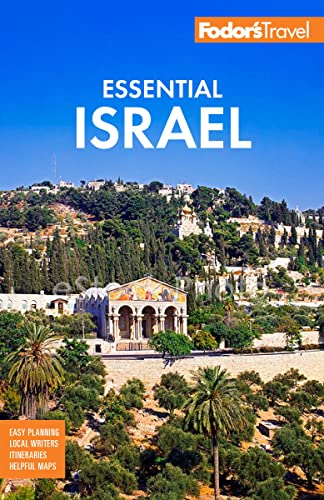Quintessential Israel
Israel is more than holy sites and turbulent politics; to get a sense of the country, familiarize yourself with some of the features of daily life.
Falafel and Shawarma
Falafel sandwiches are a fast-food staple in Israel, and stands are everywhere, from the busy streets of downtown Tel Aviv to the ultra-Orthodox areas of Jerusalem and the Eilat beach promenade.
It starts with a scoop of seasoned chickpeas ground and formed into small spheres that are quickly fried in oil and then thrust—six or so—into a pita or wrap. Patrons give a nod or a "no thanks" to some hummus or harif (hot sauce) and to each of the colorful accompaniments: finely chopped cucumbers and tomatoes, shredded cabbage (white or red), parsley, pickles, and even french fries stuffed on top. Many customers drizzle their creation with self-serve sauces like amba (spicy pickled mango) and tahini.
Be sure to have a few extra napkins ready, and assume the falafel position before taking your first bite: leaning forward well away from clothing and shoes. Equally wonderful is shawarma, similar to the Greek gyro (minus the pork). Slices of grilled turkey or chicken meat (or, rarely, the more traditional lamb) are sliced off a vertical rotating rotisserie spit and served with the same accompaniments as falafel.
The Sabra Personality
The local mythos is that Israelis have prickly personalities. Although you hear the word savlanut (patience) bandied about, natives don't seem to be blessed with an overabundance of that quality.
The character of Israelis was once compared to a local cactus that produces a “prickly pear” known as the sabra. The term “Sabra” has become a sobriquet for the native Israeli: prickly on the outside but sweet on the inside! Fortunately, this national tendency toward abruptness is tempered with a generous dose of Mediterranean warmth.
Markets and Bargaining
Israel's open-air markets are just the place to soak up local culture while shopping for snacks to stock your hotel room. Machaneh Yehuda in Jerusalem and Tel Aviv's Carmel Market are famous. For markets that sell decorative brass, ceramic and glass items, beads, embroidered dresses, and jackets or secondhand funky clothes, head to Jerusalem's Old City (the souk) or the Jaffa Flea Market.
Bargaining can be fun, but there are some useful pointers. Never answer the question "How much do you want to pay?" When the seller names a price, come back with about half. If the seller balks, be prepared to walk out; if you're called back, they want to make a sale. If you're in a hurry, vendors know it and don’t drop the price. Not every vendor is in the mood for the bargaining game: don’t begin the process unless your intentions are serious.
Café Culture
Café sitting is an integral part of Israeli life, especially in the major cities where it seems as if there's a café on every corner. The locals love their café hafuch (latte: literally, "upside-down coffee"). In many cafés, a request for cappuccino gets you the same beverage, perhaps with more froth and a shake of cinnamon. Rival Israeli coffee chains have multiplied like crazy across the country since the late ’90s. The coffee, invariably made in Italian machines, is usually excellent. Unlike European cafés where the waiters get antsy if you stay too long, in Israel you can sit unhassled for long periods. And free Wi-Fi, while not yet universal, is commonplace. Pastries range from old-fashioned strudels to flaky brioches. Most cafés offer reasonably priced full breakfasts, sandwiches, salads, pizza, quiches, and soups.




